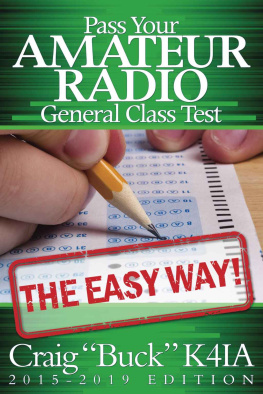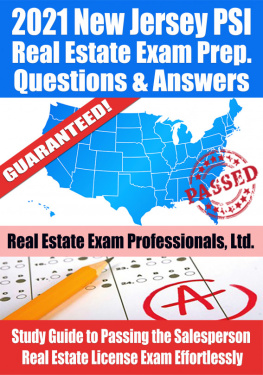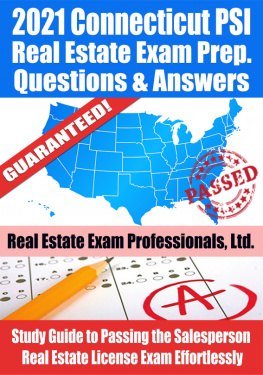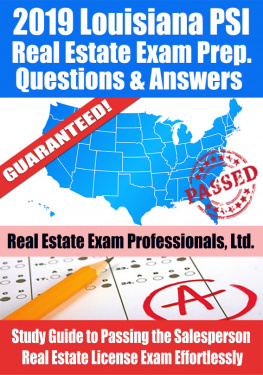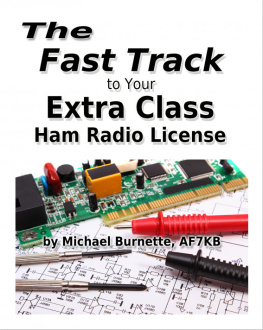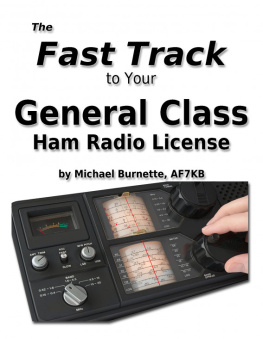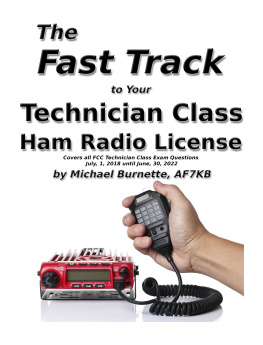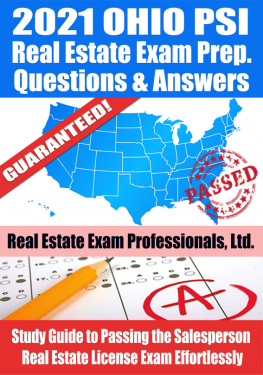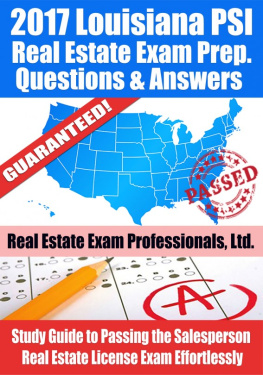There are many books to help you study for the amateur radio exams. Most focus on taking you through all the questions and possible answers on the multiple choice test. The problem with that approach is that you must read three wrong answers for every one right answer. Thats 1,386 wrong answers and 462 right answers. No wonder people get overwhelmed.
This book is different. There are no wrong answers. Im going to answer every question on the amateur radio General Class exam. Hopefully, Ill do it in a way that will help you understand the answers and be entertained at the same time. I've put the test questions and answers in bold print to help you focus. Hints to help you decipher the questions and answers are in italic print . Cheats to give you a shortcut to the answer are also italic .
The questions are in logical order, not necessarily the order they appear in the question pool and there may be duplicates. Please excuse any tortured grammar or syntax in the bold print questions and answers. In most cases, I am copying them word-for-word from the exam.
The second part of this book is a Quick Summary. Just the question and the right answer with hints or cheats. The summary is just 60 pages, not 160 because there are no wrong answers to confuse you.
You will pass your General License but it wont tell you much about how to operate, chose equipment and put up antennas. Be sure to check out my other books: How to Get on HF The Easy Way for detailed instructions to get on the air and How to Chase, Work and Confirm DX The Easy Way .
THE TEST
The test is 35 questions out of a possible pool of 462. The pool is large but only about one of a dozen questions in the pool will show up on your exam - one from each test-subject grouping. I can guarantee you wont get 35 questions on one topic. Many of the questions ask for the same information in a slightly different format, so there arent 462 unique questions.
So, how hard is the General test? It is harder than the Technician with a bit more memorizing but you can do it. I have personally taken students who didnt know anything about electronics, radio or math through this material, and they passed. Dont let the material intimidate you.
There is no Morse Code required for any class of amateur license. Morse Code is still very much alive and well on the amateur bands and there are many reasons you might want to learn it in the future. Just dont worry about learning it for now.
The good news is that we know the exact pool of questions and answers. You want to learn it all, but you only get one question from each group. If there is a question or concept you just cant get, skip it. Chances are it wont be on your test. And, you can miss nine out of the thirty-five questions and still pass.
Most important: when the day comes, take the test even if you feel you are not ready. You will be readier than you think and may surprise yourself by passing.
Do you know what they call the person who graduates last in his class from medical school? Doctor the same as the guy who graduated first in the class. My point is: pass and no one will know the difference.
The questions are multiple choice, so you dont have to know the answer you just have to recognize it. That is a tremendous advantage for the test-taker. However, it's difficult to study the multiple choice format because you can get bogged down and confused by seeing three wrong answers for every correct one. That makes it harder to recognize the right answer when you see it.
The best way to study for a multiple choice exam is to concentrate on the correct answers. The second part of this book is a condensed version of the test with only the correct answers . When you take the test, the correct answer should jump right out at you. The wrong answers will seem strange and unfamiliar.
If you dont know the answer, try to eliminate the obviously wrong answers and then guess. There is no penalty for guessing wrong, and you greatly increase your odds by eliminating the bogus responses.
Heres the ultimate secret cheat: many times the answer is a matter of common sense and logic, not engineering prowess. You can learn to recognize or figure out the answer without understanding a word of the question or answer.
Long ago, when my friend, Billy and I sat for our General test, we took a bus to the FCC Building in Washington, DC. There we met the sternest proctor I have ever suffered under. Picture the short-sleeve white shirt, skinny black tie, pocket protector, slide-rule-on-the-belt, thick eyeglasses, scowl, cigarette smoke and a full ashtray. I felt that if I did not pass the test, I was going straight to jail. I was sure the FBI had told him I had listened to Radio Moscow.
Today, it is all much easier. Volunteer Examiners (VEs) administer the testing. Volunteer Examiners are accredited by a Volunteer Examiner Coordinator organized under the authority of the FCC. VEs are local hams who devote their time to help you get your license. The ARRL website at arrl.org (click on the Licensing tab) lists local test sessions. A modest fee of about $15 reimburses the VEs costs. No one profits except you.
You may not need to take the General Class test. Anyone who can demonstrate they once held a General, Advanced or Amateur Extra class license that was not revoked by the FCC can get credit.
But, you still must pass the current element 2 Exam. That would be the Technician Class test.
Once you pass your test and have your CSCE for General Class privileges, you can operate on any Technician or General Class band segment even before you show up in the FCC database. The CSCE is a Certificate of Successful Completion of Examination.
On test day, you should bring a picture ID, your Social Security Number (not the card, just the number) a pen and pencil and the exam fee (usually around $15). You need to check ahead to get the exact amount and ask if they prefer cash or a check. If you bring a calculator, you must clear the memories. Turn off your cell phone and dont look at it during the exam.
You will fill out a simple application (FCC Form 605). You can get one from the FCC website and fill it out beforehand to save time on test day. The Volunteer Examiner team will select a test booklet. Make sure you ask them for the easy one thats good for a cheap laugh. They have no idea which questions are in which booklet. You also get a multiple choice, fill-in-the-circle answer sheet. The answer sheet has room for 50 questions, but you stop at 35. You can take notes and calculate on the back of the answer sheet not in the booklet. The VEs re-use the booklets.

